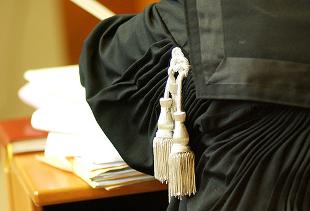- Bonafede: Friday in Cdm ok to reform civil trial
Share
December 06, 2019 Halve the time of civil trials: while waiting for a panel to be found in the majority on the reform of the criminal trial and the start of the prescription, the government launches the new civil trial. A reform, ensures the sergeant Alfonso Bonafede, considered "priority by 90% of Italians". Less rules and few rules that apply to all levels of the process is the philosophy of the reform that aims to affect the discipline of civil litigation, with a view to "simplifying, speeding up and rationalizing procedures" while safeguarding respect for the guarantees of cross-examination."We will attract more investors" assures Prime Minister Giuseppe Conte who together with the Minister of Justice goes down to the press room to reassure even the tensions underway in the majority on the prescription and reiterate: "we will ensure the reasonable duration of the trials but" the norm on the prescription "in force from 1 January it must be maintained ". "We are at work and I am sure we will reach an agreement in order to guarantee the reasonable duration of the processes", Bonafede repeats. But he insists on an unavoidable point: "it is not possible to think that after the sentence of the first degree there is not a response from the State, whether it be of acquittal or condemnation". As for the civil reform, the minister explained that we move "from three rites to a rite" and that there will be only one introductory act: the appeal. Also the perimeter of the case will be "defined 10 days before the parties appear before the judge". In addition, dead times will be eliminated, with the reduction in the number of hearings and the elimination of the hearing to specify the conclusions. Also reduced the cases in which the court will judge in collegial composition, a model that will be applied also to the collegial and appeal rite.
The reform eliminates the Fornero rite in labor law ("a sad page in political and judicial history", says Bonafede) and particular attention is paid by the text to the procedure for the dissolution of communions, which is today among those with the highest duration. And always to dispose of the arrears and facilitate the work of the judges there will be "sanctions" for those who undertake daring causes. Finally there will be a prohibition for the judicial officer to make the paper notification if the recipient has a Pec address or if he has a digital address. It will all be digitalized, and a real investment will be made in digitization. In conclusion, concludes the Guardasigilli, "in the code of civil procedure there will be fewer rules valid for all processes".

